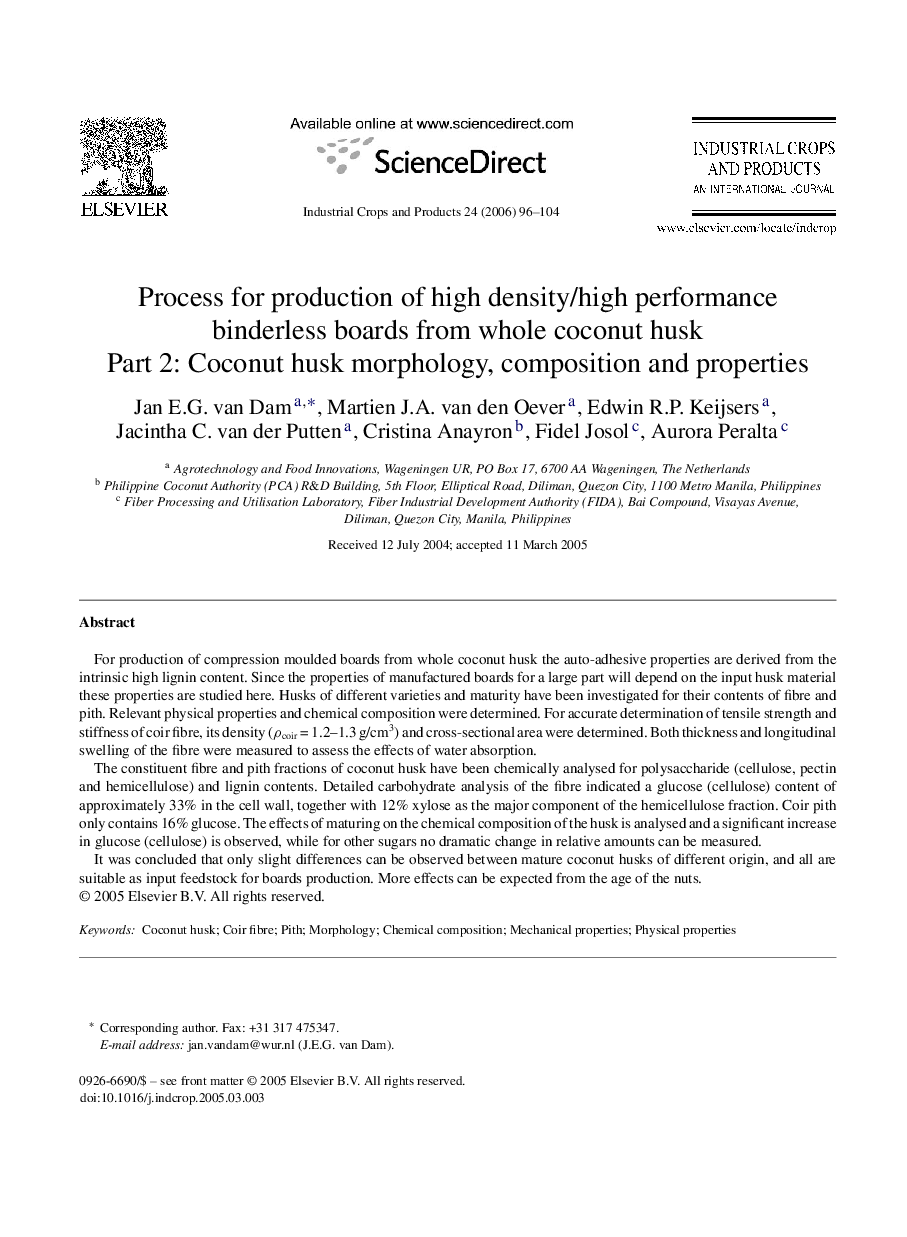| کد مقاله | کد نشریه | سال انتشار | مقاله انگلیسی | نسخه تمام متن |
|---|---|---|---|---|
| 4515298 | 1322238 | 2006 | 9 صفحه PDF | دانلود رایگان |

For production of compression moulded boards from whole coconut husk the auto-adhesive properties are derived from the intrinsic high lignin content. Since the properties of manufactured boards for a large part will depend on the input husk material these properties are studied here. Husks of different varieties and maturity have been investigated for their contents of fibre and pith. Relevant physical properties and chemical composition were determined. For accurate determination of tensile strength and stiffness of coir fibre, its density (ρcoir = 1.2–1.3 g/cm3) and cross-sectional area were determined. Both thickness and longitudinal swelling of the fibre were measured to assess the effects of water absorption.The constituent fibre and pith fractions of coconut husk have been chemically analysed for polysaccharide (cellulose, pectin and hemicellulose) and lignin contents. Detailed carbohydrate analysis of the fibre indicated a glucose (cellulose) content of approximately 33% in the cell wall, together with 12% xylose as the major component of the hemicellulose fraction. Coir pith only contains 16% glucose. The effects of maturing on the chemical composition of the husk is analysed and a significant increase in glucose (cellulose) is observed, while for other sugars no dramatic change in relative amounts can be measured.It was concluded that only slight differences can be observed between mature coconut husks of different origin, and all are suitable as input feedstock for boards production. More effects can be expected from the age of the nuts.
Journal: Industrial Crops and Products - Volume 24, Issue 2, September 2006, Pages 96–104